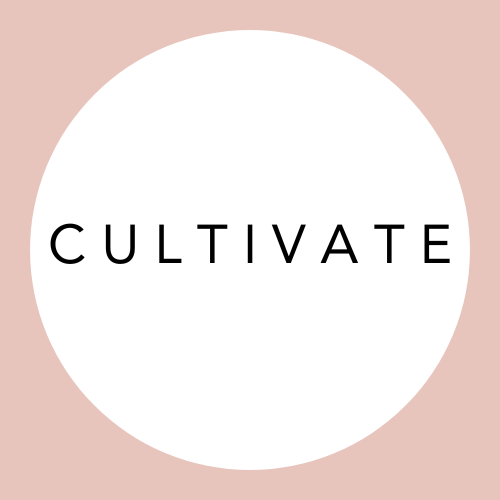WeCultivate: The Pod
A place to discuss how we think about and experience language and communication.
Not just "learn" them.
Return to Main Podcast Page
Episode 3 Transcript & Show Notes

Episode Summary
This episode addresses a common question about the best approach or tool for language learning, where I emphasize that there is no single ultimate method or tool that works for everyone. Language learning should be a multi-modal approach, utilizing various resources and methods to cater to individual needs and circumstances.
Key Takeaways:
- The idea of one single ultimate tool is a misconception.
- Don't underestimate the power of marketing and mistake it for reality.
- Multi-modal AND personalized strategies need to play larger roles in the current industry.
Full Transcript
(00:00): One common question that I get, and I think this happened way more when I did traditional teaching, but one common question has been, which approach should I use or what type of tool do you think is best? I've had a really kind of strange time answering this one because I think it comes with all these layers. I sometimes don't know if the person is asking me because they think that there's only one type of tool, so let's address this. I don't know how we arrived here. I don't know how we ended up in a world where there are people who believe that there is one ultimate method. I do think that a lot of marketing has to do with this, but let me be the first to tell you. If you don't know, there is no one ultimate tool that will work for everyone. When I see people online frustrated that Duolingo is not working because Duolingo promised them that they could become fluent in X amount of time, number one, I don't think Duolingo does that, and number two, I think we're just a lot of us are missing the larger point language learning or mastery or any sort of endeavor that you do in this area. (01:09): It's meant to be a multimodal approach, and I think the issue is that there are many of these courses and products that go and try to tell you that theirs is the ultimate way or theirs is the all-in-one, right? There is an issue with all-in-one, if it's one size fits all, it's impossible for language to be one size fits all for language learning to be one size fits all. We're all different humans. We all think differently. We all express differently, and furthermore, many times when people say one size fits all, they modeled their all off of a standard version that corresponds to who they are, but not necessarily a universal model. So I require all of my trainees, especially instructor training to be doing things outside of just our working sessions. Require is a little bit of a strong word, but it's one that is meant to really drill home.
(02:01): This idea that what we do together is not meant to be sufficient, and this goes to the issue of fit. This goes to the issue of philosophy. This goes to the issue of approach. I expect people to be doing as many things as reasonably possible to supplement our work and or use our work as a way to supplement whatever else is going on in their lives because that's just how it works. When you learn something and forget learning, I mean at this point it's training, right? When you're training, you don't make the assumption that a single class or a single tool or a single book is going to give you everything. Anybody who is trained in anything, be it sports, be it arts, god, any type of skill, we've become so detached it seems from this base idea that language is meant to be a skill.
(02:54): I know a number of people have put out information on it, but I just don't think it's clear enough. It's sort of been maybe unconsciously modeled to the masses that there is an all in one type of solution, and that is a marketing technique that's not a reflection of reality. Just like how classroom education is not sufficient for workplace success, I don't know why for language, it just breaks down. People tend to think that it's supposed to be the way or the approach or how you can hack into it the best way possible. Why not use everything at your disposal? Why not use all the diversity of different materials and resources out there to then better support every facet of your learning and training? Why try to box it into one? And I think that's the key message I realize is not being put out inside of this space.
(03:56): We are not talking about it with enough clarity, enough precision, enough honesty sometimes that it takes more than whatever it is you're doing. This is not to knock what anyone is doing. Every single type of approach can be valid. It's also on the person themselves to decide how they want to use it or how they want to leverage all of the different options available. It's like this type of thinking that I think is really, really destructive for when you're working with someone and your only message to them is, well, you didn't go this way because you should have gone that way. It gives the impression that there is this sort of right way to go and that it's a singular right way. It's like a lot of people are waiting on this key, on this type of ultimate solution, and it's not doing a service to anyone to pretend that there is a solution.
(04:57): You can have a solution, let's say for one aspect of a language, so for instance, I work on the area between advanced grammar and business communication. That's my niche, that's my area. That's where I do best and that's where I contribute value. I will not pretend that I am out there able to respond and meet the needs of every aspect that this person will go through in their English life. That's crazy. Not only is it about my own capacity, of course I can offer different types of course modes. It's that it's not possible. What this person needs, first of all, is dedicated work inside of multiple different target areas. Let's say now afterwards, when they go on, let's say they get a new job or they change countries or they change industries, what they need may change and the supply in the market is there to help them respond to each one of those needs.
(05:54): It's as if people are forgetting that you're supposed to take different approaches depending on where you are in life or depending where you are inside of your learning journey. We need to be encouraging a multifaceted, multimodal approach to learning. No one person is going to be the ultimate guide for another person because it's that person's life. It's that person's decision making. It's that person's job, that person's career, that person's family, that person's everything. Know where you are relative to them so that you can best help them. Don't, let's not pretend that any one person shoulders that entire burden, and that's a great thing. It's a great thing that people have specializations in different areas. Let's recognize that we as the professionals in the field, we are there to lend our expertise, our feedback, our contributions, but we are not in the seat of decision-making power for that individual. That person decides for themselves and can decide for themselves, assessing all of the different options available and can choose to go between one and another depending on the season of their life. Okay, I'm going back to work.
There's more coming...
-
Stay tuned for more recorded conversations with others in the field.
-
Follow Michelle on Instagram for more content and updates.
-
Send me your questions, topic requests, and more!
Take the next step and connect with what you've heard

Get supplemental exercises, video walkthroughs, and SO much more with the Seeds™ Membership. Be the FIRST to know when it drops in 2025.
Get started today before this once in a lifetime opportunity expires. All subscribers will be sent a special 50% promo!

Want to work with me 1:1?
New training products will be available in Jan 2025. Make sure to check back then!
Deepen your connection with language through training freebies and real, relevant info.
Straight to your inbox 2x/month.
Subscribe to The Communication Shift
A biweekly newsletter that speaks to YOU as a human.
Not just a "language learner"
We won't send spam. Unsubscribe at any time.

